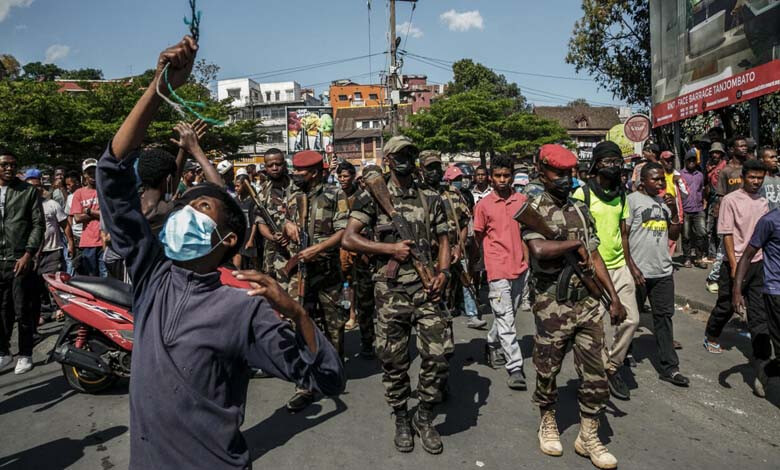
ANTANANARIVO, Madagascar – Madagascar's political landscape was dramatically upended on Tuesday as the National Assembly voted to impeach President Andry Rajoelina, immediately followed by the military seizing power, bringing an abrupt end to weeks of escalating, youth-led "Generation Z" protests over economic hardship and governance issues.
The crisis, ignited by demonstrations that began on September 25th against persistent water and electricity shortages, spiralled into a nationwide movement against the government's alleged corruption and indifference to widespread poverty. The youth-led "Gen Z" protesters, many of whom have cited inspiration from similar movements in Nepal and elsewhere, rapidly gained momentum, transforming initial grievances into calls for the president's resignation. Madagascar remains one of the world's poorest nations, with approximately 75% of its population living below the poverty line.
Military Unit Takes Control After Impeachment
The decisive turning point came when the elite Army Personnel Administration and Technical Services unit (CAPSAT), a military group instrumental in Rajoelina's own rise to power in a 2009 coup, broke ranks and sided with the demonstrators over the weekend. Following Rajoelina's refusal to step down and his subsequent attempt to dissolve the National Assembly by decree, the parliament pressed ahead. Lawmakers voted overwhelmingly, with 130 votes out of 163, to impeach the president on charges of abandoning his post, a move well beyond the required two-thirds threshold.
Minutes later, Colonel Michael Randrianirina, commander of the CAPSAT unit, announced on national radio that the armed forces had "taken the power." Speaking in front of the ceremonial presidential palace, he declared the dissolution of all state institutions—except for the impeaching National Assembly—and the suspension of the constitution.
Colonel Randrianirina stated that a transitional government, composed of a council of officers from the army, gendarmerie, and national police, would assume leadership for a period of up to two years. During this "transitional period," the military promised to draft a new constitution via a national referendum and gradually hold elections for new institutions, aiming for a swift return to civilian governance. The High Constitutional Court, recognizing the effective vacancy of the presidency due to Rajoelina's absence, issued a separate statement urging Colonel Randrianirina to assume the functions of Head of State.
President's Flight and Coup Accusation
Rajoelina, whose whereabouts remain unknown, had earlier stated in a social media address that he had relocated to a "safe place to protect his life." Reports from opposition officials and diplomatic sources suggest he may have fled the island nation on a French military aircraft. In a defiant statement, his office condemned the military's actions as a "clear act of attempted coup d'état" and insisted that the president remained in office and was committed to maintaining constitutional order.
This development marks a dramatic fall for the 51-year-old Rajoelina, a former DJ who first came to power with military backing in 2009. Having returned to the presidency after being elected in 2018 and re-elected in 2023, he was ultimately ousted just 19 days after the youth-led protests began. His fate was sealed when the same military unit that had paved his original path to power turned against him, demonstrating the deep fragility of political stability in the Indian Ocean island nation, which has endured repeated political crises since its independence from France in 1960. The escalating crisis underscores the enduring frustrations among Madagascar’s young population over poverty, lack of opportunity, and governance failures.
[Copyright (c) Global Economic Times. All Rights Reserved.]




























